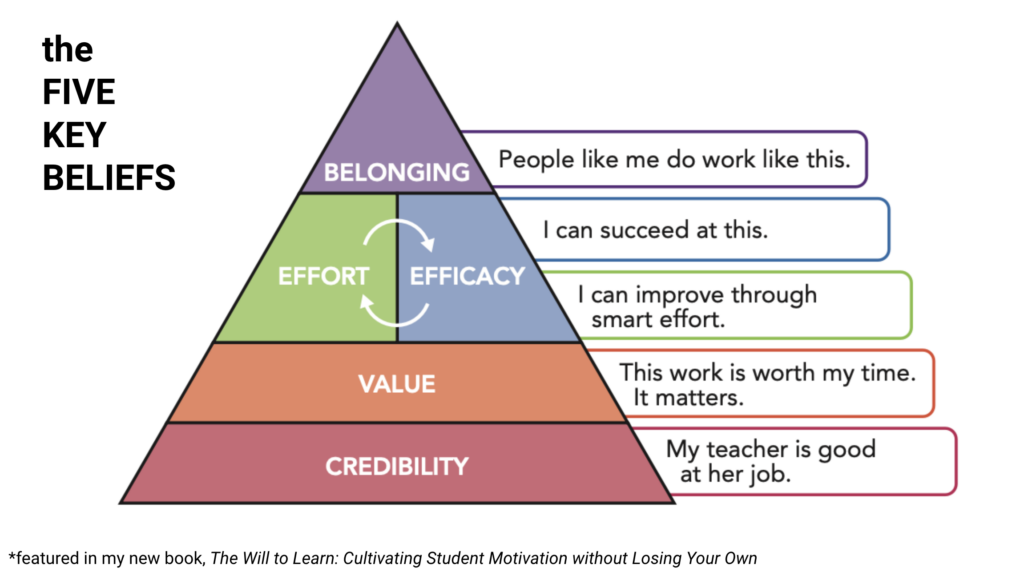When my students get their first assessment results of the school year, I like to share with them one of The Godfather's many iconic lines: It's not personal, it's business.
(Actually, the line is “It's not personal, Sonny. It's strictly business.” It's in one of several career-launching scenes for Al Pacino. Here's a clip.)
This is what it sounds like when I introduce this idea to my students:
“All right. We're about to get our test results back for Unit 1, and as I've been saying to you, our tests are meant to be checkpoints along the journey for us. Tests help us remember things. They tell us what we do and don't know. We want them to challenge us. We want them to make sense to us. And, from them, we want to continue to grow.
“The problem is, many students take their test results personally. They see a score, and they think, ‘Oh — I'm stupid.' Or, ‘Oh — I'm smart.' I did the same thing in school, and — it's really a problem. Because whether you summarize a test score into ‘I'm stupid' or ‘I'm smart,' the result is the same: the test result stops teaching you. Instead, it judges you, giving you a summary of who you are.
“That's the problem I'm trying to help you avoid with this classic line from The Godfather: ‘It's not personal, it's business.' The most productive and lighthearted of learners are those who see test results as information, not as judgment. They see them as saying something about the work of learning, NOT as saying something about who they are.
“In other words: they don't take it personally. They know that as human beings there is a lot more to them than just the latest test score.
“So, before we look at these, let's repeat after me: ‘It's not personal, it's business.”
“All right. Now let's see what we can learn from our test results.”
What I'm trying to do here is remedy a common problem that harms some of the Five Key Beliefs beneath student motivation. (New book on that here.)

When kids infer from test results that they are smart or stupid, they're internalizing an anti-Effort belief. To put it in a buzzwordier way, they are in that moment strengthening a fixed mindset. Both interpretations — my test results mean I'm stupid or my test results mean I'm smart — are a liability for motivation in the future.
- The I'm stupid interpretation means that no matter what kind of effort I put forth, I can't improve or succeed. It also means I don't fit in here. So basically, the top three beliefs in the Five Key Beliefs Pyramid are harmed.
- The I'm smart interpretation means that my identity as a learner is based on my performance on tests. In this situation, each test becomes a threat to one's sense of self, and as a result tests get toxically stressful. And also, someone who is smart doesn't need to put forth Effort — they've already arrived.
What I'm trying to do, all year long, is help students interpret feedback — including summative test results — as information that guides their learning. It's about the business we are about in school: learning. It's NOT about us as human beings.
So what am I saying?
First: watch the The Godfather. It's a really good movie, in the same sense that The Kiterunner or The Life of Pi are really good books.
Second: your students need to hear from you, in a way that makes sense to you, what tests are for.
Again and again and again, they need to hear this.
Best,
DSJR
Leave a Reply